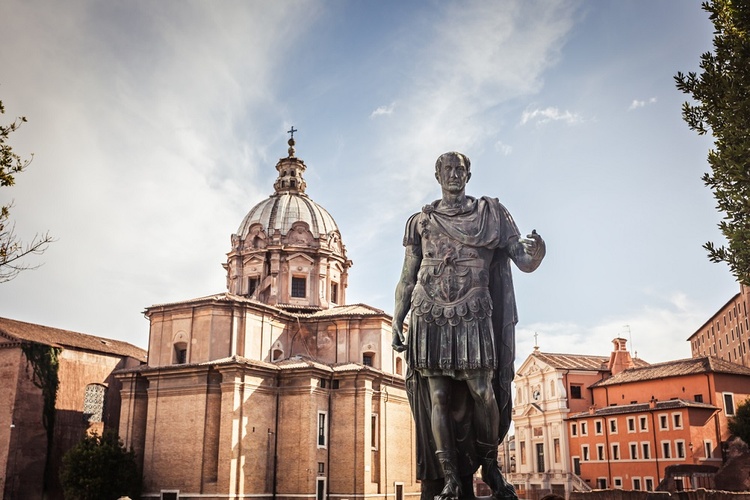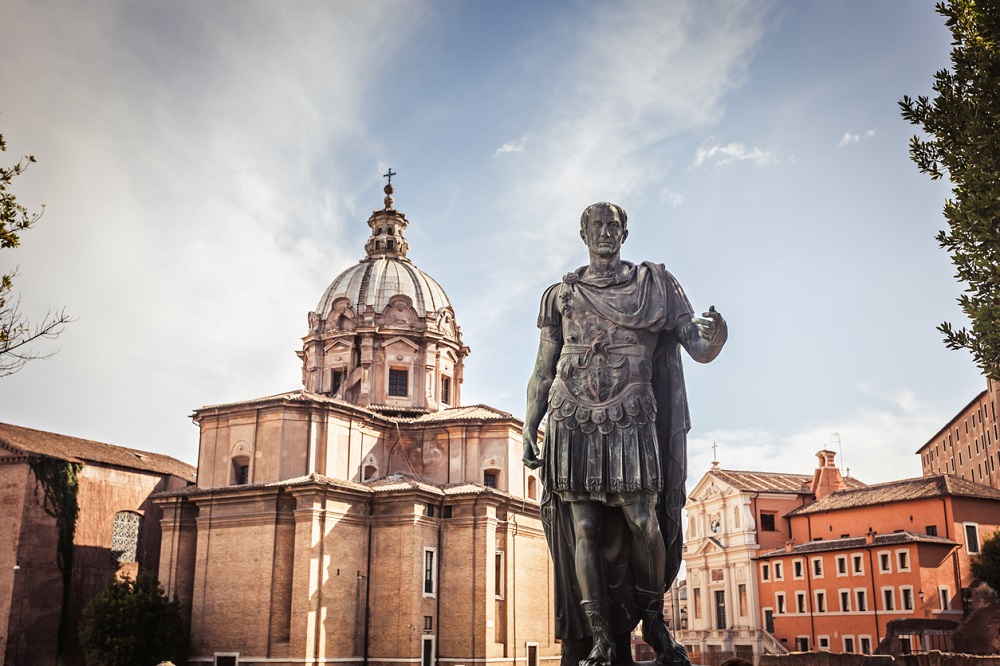The Roman dictator was assassinated by a group of rebellious senators on the Ides of March (March 15) of 44 BC, during a meeting of the Senate at the Theatre of Pompey in Rome.
The senators stabbed Caesar 23 times.
Caesar had many enemies in the Senate who despised his audacity in dismantling the Roman Republic all by himself, but their hands were tied as Caesar had the popular support of the general public and the army.
His assassins claimed to be acting over fears that Caesar’s unprecedented concentration of power during his dictatorship was undermining the Roman Republic, and presented the deed as an act of tyrannicide.
They chose to carry out the assassination at the Theatre of Pompey as non-Senate members were not allowed in, meaning Caesar could not bring his guards in, and the conspirators could easily carry daggers hidden beneath their togas.
The death of Caesar is one of most significant events in ancient Roman history.
It led to historic repercussions and triggered a civil war that saw the transition of the Roman Republic to the Roman Empire, much to his assassins’ dismay.
Caesar is arguably one of the most influential figures of ancient Rome.
He has been depicted in different forms of art and culture time and again.
From ancient poems and recitals to works by medieval historians, the name of Julius Caesar resurfaces throughout literary history.
Perhaps it was in the Shakespearean play aptly named The Tragedy of Julius Caesar where his name became truly immortalised.
Caesar’s name even went on to influence words describing leaders in many other languages, such as Kaiser in German, tsar in the Slavonic languages, and qayṣar in the languages of the Islamic world.
Today, many cultural events are held in Rome on March 15, including a re-enactment of Caesar’s death at the very place where it unfolded, the Torre Argentina archaeological site.
Locals lay flowers at the ruins of the Temple of Caesar, on the eastern side of the main square of the Roman Forum, which was erected at the site of Caesar’s cremation a few years after his death.
The rise of Julius Caesar
Born Gaius Julius Caesar on July 12 or 13, 100 BC, he grew up in Rome in a noble family, the Julian clan.
The family claimed descent from Iulus, son of the legendary Trojan prince Aeneas, supposedly the son of the goddess Venus.
Caesar progressed through the Roman political system and, when the civil war broke out, he defeated the republican forces and seized power over Rome.
Caesar made himself dictator of Rome and ruled from October 49 BC to his death in 44 BC.
During this time, he paved the way for the imperial system.
After assuming control of government, Caesar began a program of social and governmental reforms, including the creation of the Julian calendar.
He gave citizenship to many residents of far regions of the Roman Empire and initiated land reform and support for veterans.
He also centralised the bureaucracy of the Roman Republic and was eventually proclaimed “dictator for life”.
Caesar was the first historical Roman to be officially deified.
He was posthumously granted the title Divus Iulius (the divine/deified Julius) by decree of the Roman Senate on January 1, 42 BC.
The appearance of a comet during games in his honour was taken as confirmation of his divinity.












